
OR
CNN Hero Doyne helping people in dire need (with video)
Published On: May 26, 2020 04:30 PM NPT By: Aditi Baral
She shares heartbreaking stories of women and children who have nothing to eat
KATHMANDU, May 26 : It has been more than two months since both Nepal and India closed their borders. However, the border areas continue to receive thousands of Nepalis returning home from India. Every person has a story of struggle and pain – all just to return home. The situation along the border reflects a humanitarian crisis in the making. For the past few days, Maggie Dyone, 2015 CNN Hero of the Year and founder of Blink Now Foundation, has been doing her best to lend a helping hand to the people in and around Surkhet.
The situation is severe. Talking to Republica Online, Doyne shared the story of an eight months pregnant woman sleeping on the roadside with her two children. Laxmi, the woman, had walked for 17 days to reach Nepal. “They had no food or water for days even after they entered Nepal,” Doyne said.
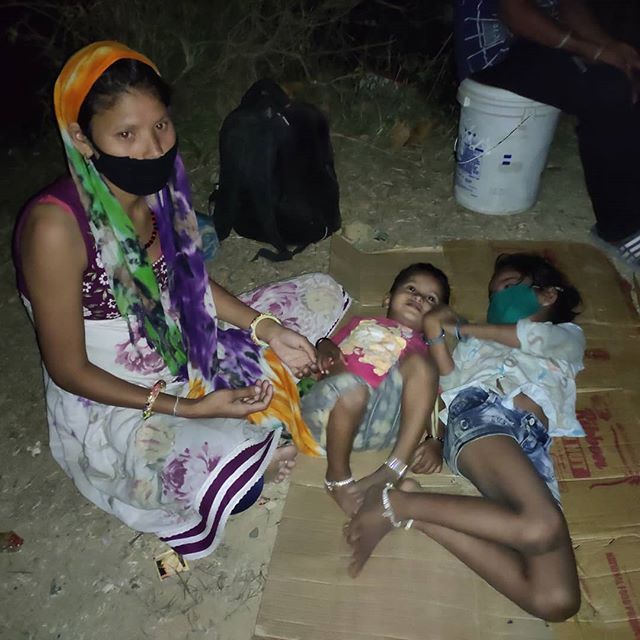
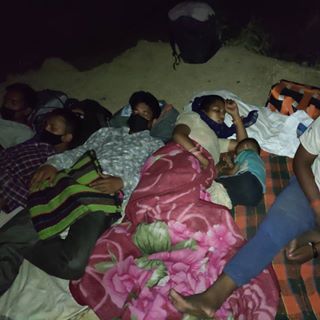
This is just one example, and many families have been displaced, forced to sleep under the bare sky on roadsides – vulnerable to mosquito bites and other fears.
The plight started three months ago as both the countries imposed nationwide lockdowns in order to curb the spread of coronavirus. Since then, many Nepalis working across the border are returning home.
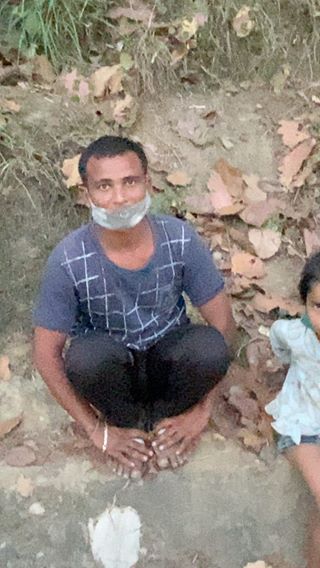
These people are traveling in packed vehicles with 60 to 80 people, managed by themselves – most vehicles in poor condition. “These people are forced to come back in packed vehicles as the authorities from the Nepali side haven’t been able to manage vehicles. No buses or drivers are willing to contribute,” Doyne told Republica Online over the phone. Many people came walking from various parts of India, while a few others were provided transportation service by the Indian authorities.
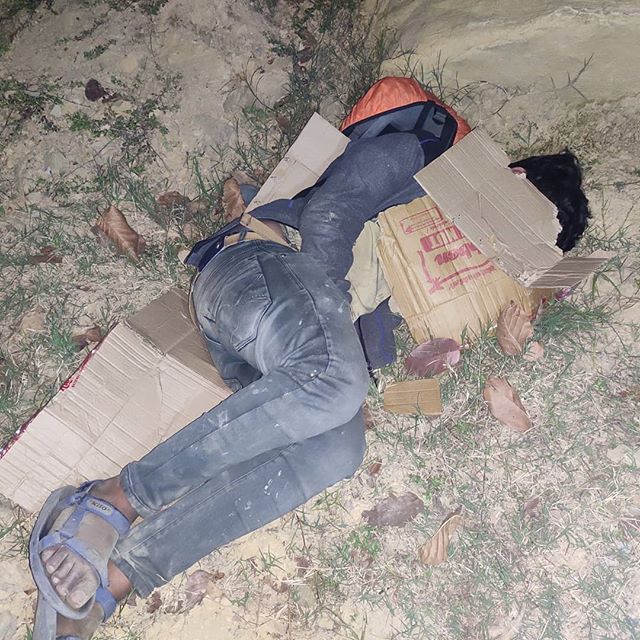
It is estimated that over a million Nepalis live and work in India, mostly as low wage labourers. By now, the number of people stranded along the borders has crossed over 5,000. The numbers keep increasing everyday. Hundreds of people have also tried sneaking into their villages through narrow fields and rivers illegally, without notifying authorities, fearing the stigma they have to face during quarantine.
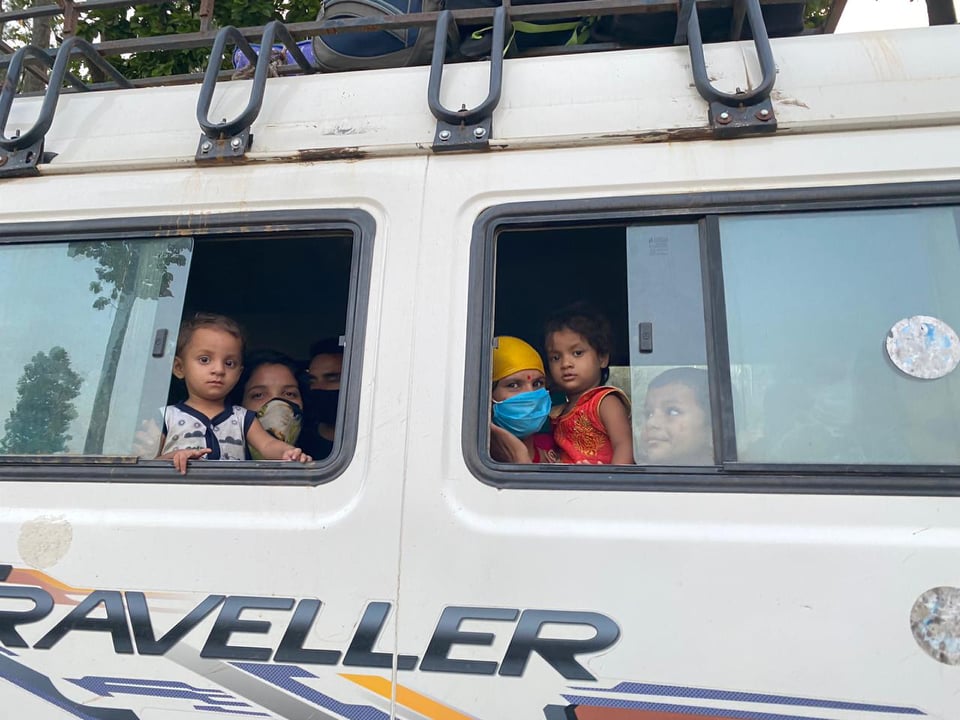
The problem escalated as the returnees started complaining about police officers misbehaving with them. On Monday, 57 people protested in Laade, Surkhet against police officers, accusing the officers of misbehaving with them. On a Facebook live video shared by Buddhi Singh Thakuri, a journalist based in Surkhet, these people protested against police officers claiming that the officers misbehaved with the returnees, hitting them with pipes and sticks and even directing improper slang words toward them. The protesters can be heard saying, “We haven’t eaten proper food or water for several days. How can we remain quiet when the police officers misbehave with us in a situation like this”?
A person adds to that saying, “We ate only Kaaphal (bayberries) for the last four days”.
The returnees state that they were provided endurable food and water before entering the Nepali borders. But, since entering their own nation, they have been deprived of basic rights of having proper food and shelter.
They place a single demand – returning home as soon as possible and being provided with proper food during their way back home.
Doyne has been doing her level best to provide help to these people. With the help of some local people, she has provided packets of noodles and about 10,000 bottles of water to the needy ones. “Even when there is no concern from a higher level, some local people joined in to help them,” she said.
“But only noodles and little water is not enough. The level of hunger and suffering has angered these people,” she said. Doyne herself stayed with the strained returnees to ensure proper facilities for them as soon as possible.
“The police officers try not to indulge in fights. But it’s hard for them to control the overwhelming number of people. On top of that, hunger and starvation has intensified the anger of the returnees, compelling them to become violent,” she explained, adding “The policemen are also under pressure from the government.”
Ramesh Adhikari, the chief district officer of Surkhet, mentions that the problem arrived as overwhelming numbers of people started coming in. “The number of people coming from across the border is a lot more than we expected,” he said over the phone.
According to Adhikari, the provincial government has been doing its level best by setting up health desks and 400 beds in different local units for quarantine.
However, Adhikari himself recognized that food and shelter for people who travel on foot or on self-managed busses haven’t been provided on a good scale. His office is still waiting for further decisions from the upper strata of the government.
The situation of these returnees seems to get worse with every passing day amidst the extended lockdown. “The decisive body seems to be caring, but there is barely a proper action to solve this,” Dyone said.
Nevertheless, acknowledging Doyne’s and the local people’s efforts to help the returnees, Adhikari said, “It is a common problem and possible efforts from the common people do help a lot”.
You May Like This
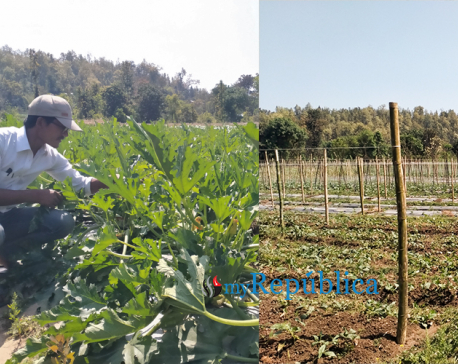
Lockdown creating opportunity for vegetable farmers in Karnali
SURKHET, April 27: Dinesh Rawal, a resident of Sidhhakumakh Rural Municipality in Salyan district runs an agriculture farm in Panchapuri... Read More...
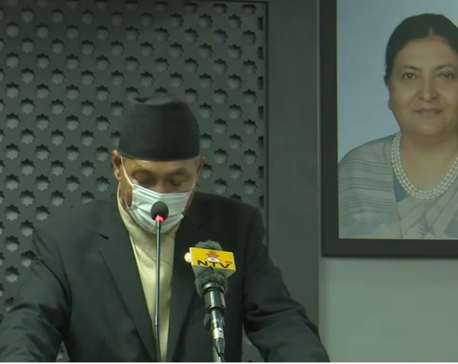
Here are key decisions taken by cabinet meeting today (with video)
KATHMANDU, March 29: A cabinet meeting held at the Prime Minister's official residence, Baluwatar, has taken various decisions ranging from... Read More...

Govt having tough time managing essential supplies
KATHMANDU, March 26: While the government is struggling to maintain smooth supply of essentials during a weeklong lockdown, the Indian government's... Read More...

Just In
- 19 hydropower projects to be showcased at investment summit
- Global oil and gold prices surge as Israel retaliates against Iran
- Sajha Yatayat cancels CEO appointment process for lack of candidates
- Govt padlocks Nepal Scouts’ property illegally occupied by NC lawmaker Deepak Khadka
- FWEAN meets with President Paudel to solicit support for women entrepreneurship
- Koshi provincial assembly passes resolution motion calling for special session by majority votes
- Court extends detention of Dipesh Pun after his failure to submit bail amount
- G Motors unveils Skywell Premium Luxury EV SUV with 620 km range
















Leave A Comment